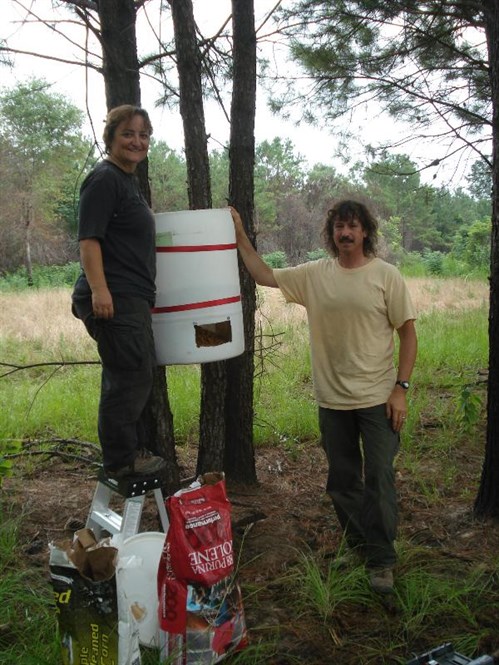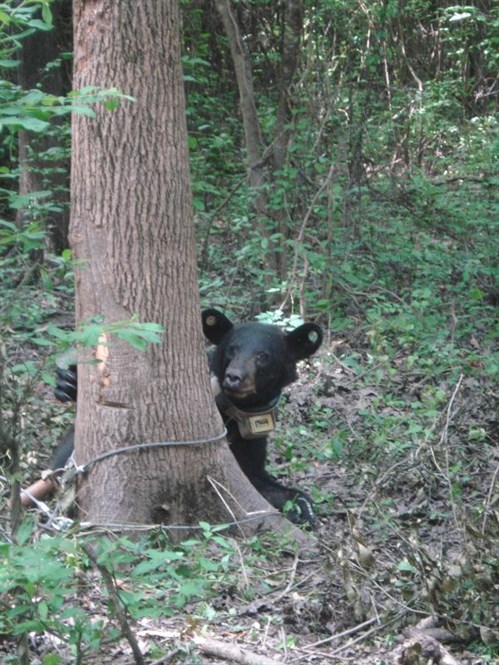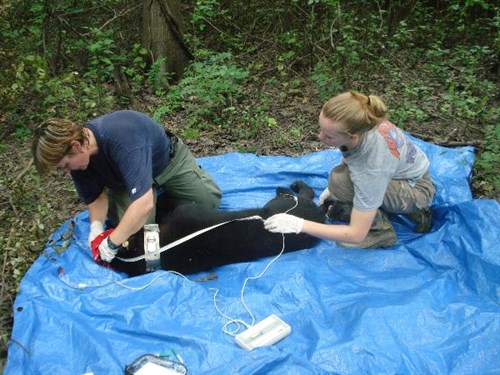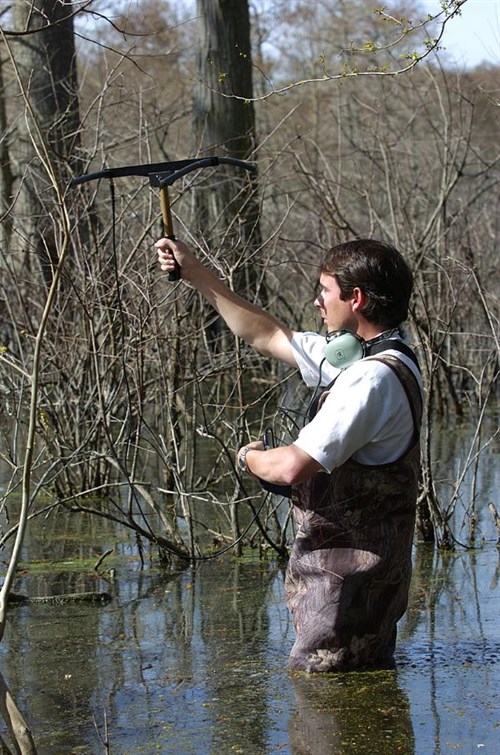Colonization of Black Bears in Mississippi
Principal Investigators
Jerold Belant
Mississippi State University Department of Wildlife and Fisheries
Brad Young
Mississippi Department of Wildlife, Fisheries, and Parks
Graduate Research Assistants
Stephanie Simek
Mississippi State University Department of Wildlife and Fisheries
American black bears (Ursus americanus spp.) are native to Mississippi and historically occurred throughout the state. Although Mississippi was well known for bear hunting, by 1993, black bear numbers in Mississippi were estimated at less than 25 individuals. However, since 2002, black bear sightings in Mississippi have increased and likely reflect an increasing bear population. No prior research has examined how individuals in this colonizing bear population select their home ranges with respect to the spatial distribution of available resources and demography of bears. More importantly, very few opportunities exist for studying how large carnivores colonize unoccupied habitats.
In 2008, we initiated a 5-year study to:
- refine habitat suitability models
- evaluate competing models for estimating black bear dispersal and movements.
- conduct a statewide corridor assessment for black bear dispersal.
- predict black bear colonization across Mississippi.
Habitat loss has dramatically reduced the range of black bears throughout the Southeastern Coastal Plain. Quantifying habitat suitability is a high priority for black bear conservation in Mississippi and is necessary to ensure long-term viability of this small, but increasing population. Black bear habitat use data specific to Mississippi is not presently available. We will build on and expand current efforts to quantify black bear habitat use and spatial ecology. The project goal is to characterize aspects of black bear ecology and to validate and refine a previous black bear habitat suitability model. This project will document black bear seasonal habitat use and den site use in Mississippi, particularly in the Delta. In addition, estimates of seasonal and annual home range size and movements will be obtained. This data will be used to estimate resource selection and validate a black bear habitat suitability model developed previously. This project will also characterize corridor use by black bears and provide estimates of routes for black bear dispersal.
Full Report on Research Accomplishments To Date

Graduate student Stephanie Simek (left) and Dr. Jerold Belant (right) establish a bait site to attract black bears.

This black bear has been caught in a snare trap. Note that this she has been captured previously and outfitted with ear tags and a GPS tracking collar.

Graduate students Stephanie Simek (left) and Brittany Waller (right) collect biological data from a captured black bear.

Once data has been collected from captured bears and they are released, biologists track them to monitor their movements. Brad Young, MDWFP Black Bear Program Leader, tracks a bear in the Mississippi Delta.
Funding for this project was provided by:
 |
 |
 |
 |









